Ranking Every Team in Men’s College Basketball, From UNC (No. 1) to Hartford (No. 363)
Next week marks the start of the 2022–23 college basketball season, which means Sports Illustrated’s annual preseason ranking of every men’s Division I team is back.
This year’s number of teams is up to 363 (from 358), a reminder of just how all-encompassing this sport really is. Just consider last season, when our No. 179 preseason team, Saint Peter’s, was one of the sport’s final eight standing in the NCAA tournament after a stunning run through March.
This year’s 1–363 ranking was put together by SI college basketball writer Kevin Sweeney, who set out to weigh the placement of every program in the country. Several factors were considered: returning production (and projected growth for those players), transfer additions, recruiting gains, program and coach reputation, conference strength and more. The hope was to capture a snapshot of preseason expectations, from the Power 5 down to the low mid-majors.
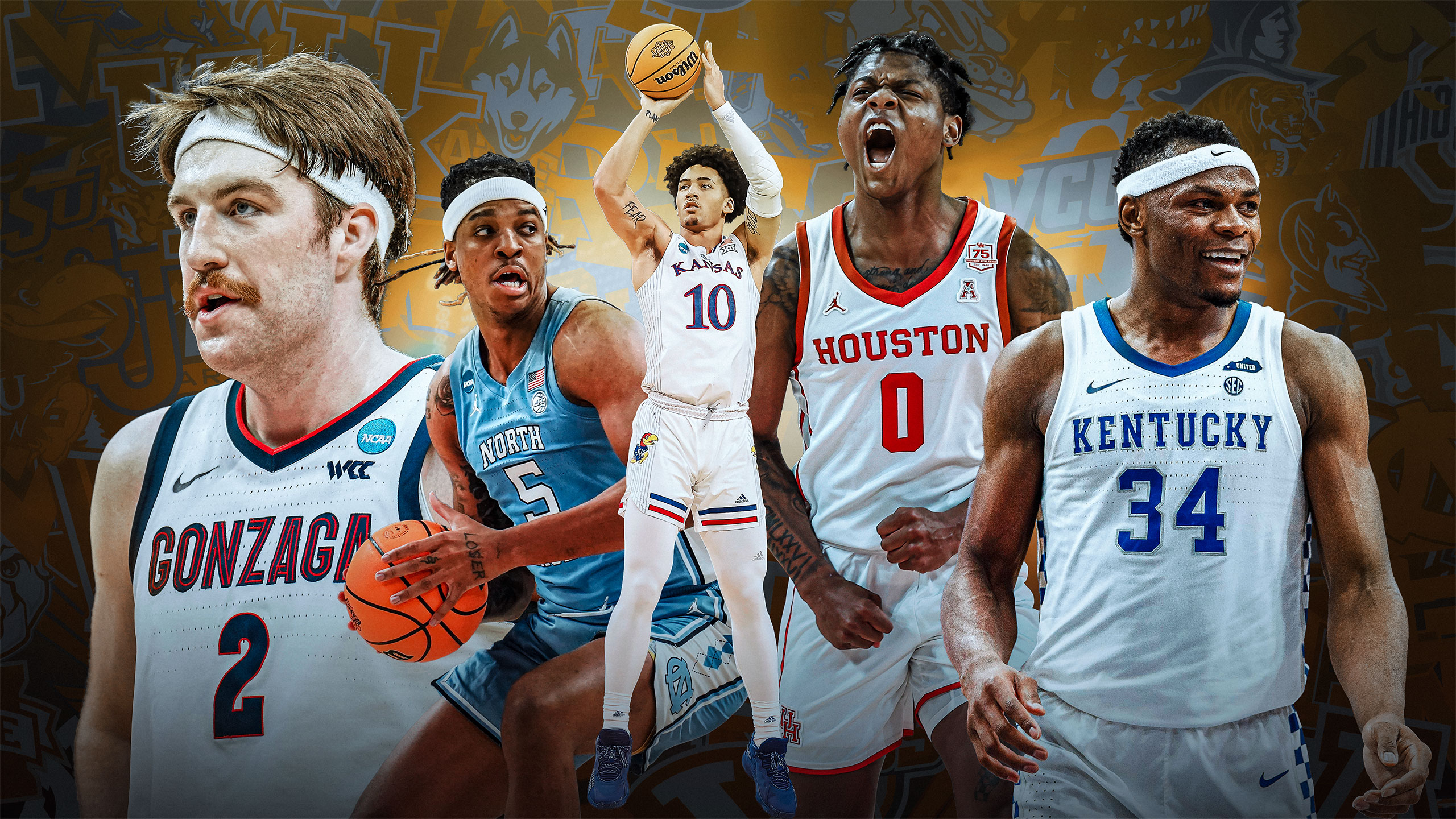
Below are the results, plus insights and information from Sweeney and editor Molly Geary on SI’s preseason top 25 and dozens of other notable teams, all the way down to No. 363.
Conference Previews: ACC | Big Ten | SEC
- North Carolina (1st in ACC): The nucleus of the Tar Heels team that came up short in the 2022 title game is back, including dominant post player Armando Bacot and elite scorer Caleb Love. Northwestern transfer Pete Nance replaces Brady Manek and gives UNC the best starting lineup in the sport.
- Gonzaga (1st in WCC): The Bulldogs have finished first or second nationally in KenPom’s rankings for four straight seasons. It’s only a matter of time before Mark Few’s team breaks through and wins a championship. With Drew Timme back for his senior season, this could be the year.
- Houston (1st in AAC): Any Kelvin Sampson team will defend and rebound at an elite level, but what makes this group special is the elite guard play of Marcus Sasser and Jamal Shead. Plus, the Cougars have a pair of potential NBA one-and-done prospects in Jarace Walker and Terrance Arceneaux.
- Kentucky (1st in SEC): The Wildcats are the first team to bring back the defending men’s National Player of the Year since Tyler Hansbrough returned to North Carolina in 2009. The end result for the Heels that year? A national title. Can Oscar Tshiebwe and the Wildcats replicate that in ’23?
- Duke (2nd in ACC): The Blue Devils start the post–Coach K era with a stocked cupboard thanks to the nation’s top recruiting class, complemented by veteran point guard Jeremy Roach and Illinois transfer wing Jacob Grandison. Jon Scheyer’s first team could be elite on defense with freshman Dereck Lively II protecting the rim.
- Baylor (1st in Big 12): The guard play in Waco this season could be elite, with smooth playmaking freshman Keyonte George joining proven commodities Adam Flagler and LJ Cryer in the backcourt. Don’t expect much, if any, drop-off from the three straight top-five AP poll finishes the Bears have amassed.
- Arkansas (2nd in SEC): Coming off consecutive Elite Eight appearances, Eric Musselman brings in his most talented roster yet to Fayetteville. Highly touted freshman guard Nick Smith Jr. could be the best NBA prospect in college hoops this season thanks to his skill level and electrifying hops.
- Creighton (1st in Big East): There’s belief in Omaha that this could be the best team in Bluejays history. This group punched above its weight in 2021–22 and now has an extremely talented young core that learned the ropes last season. Remember the name Arthur Kaluma, this season’s most obvious breakout star.
- Kansas (2nd in Big 12): The defending champs lose a lot, but PF Jalen Wilson should be among the Big 12’s best players and the Jayhawks have their best incoming freshman class in some time joining the fray. Plus, Bill Self is the sport’s most consistent winner.
- UCLA (1st in Pac-12): Johnny Juzang moves on, but Jaime Jaquez Jr. and Tyger Campbell are back for Mick Cronin’s Bruins to give UCLA one of the more experienced nuclei in the country. Expect highly regarded freshman center Adem Bona to make an immediate impact up front.
- Tennessee (3rd in SEC): The only thing missing in the Rick Barnes era in Knoxville is a deep NCAA tournament run. This year’s Vols are built to be elite on the defensive end of the floor, and sharpshooting guard Santiago Vescovi is perhaps the sport’s most underappreciated star.
- Texas (3rd in Big 12): There’s no doubt the Longhorns have talent after adding top transfer Tyrese Hunter (Iowa State) and elite freshman Dillon Mitchell. Will it mesh together better than last year’s group, which never quite reached its ceiling despite the program’s best KenPom finish in a decade?
- Villanova (2nd in Big East): Kyle Neptune has the unenviable task of following Jay Wright at Villanova, though Wright left behind three impact players in Caleb Daniels, Brandon Slater and Eric Dixon to lay the foundation. And while Villanova isn’t known as a one-and-done factory, freshman Cam Whitmore could be an exception.
- San Diego State (1st in Mountain West): This may end up being the best defensive team in the sport, thanks to shot-blocking wizard Nathan Mensah, and the Aztecs have just enough firepower offensively to have legitimate Final Four aspirations.
- Illinois (1st in Big Ten): This is a very different Fighting Illini team than the Kofi Cockburn–centric squads of the past two years. The 2022–23 Illini’s strength is in versatility after adding positionless pieces like Matthew Mayer (Baylor), Terrence Shannon Jr. (Texas Tech) and Ty Rodgers. Freshman PG Skyy Clark will dictate this group’s ceiling.
- Arizona (2nd in Pac-12): The Wildcats lost three key cogs to the NBA after a banner first season under Tommy Lloyd, but the returns of Azuolas Tubelis and Kerr Kriisa ensure this group a spot in our top 25.
- Texas Tech (4th in Big 12): Mark Adams’s patented no-middle defense gives the Red Raiders a high floor. And while there are plenty of new faces, this transfer-heavy bunch has plenty of offensive upside. The frontcourt duo of Kevin Obanor and Utah Valley transfer Fardaws Aimaq should be hard to stop, assuming Aimaq recovers well from an offseason foot injury.
- Dayton (1st in Atlantic 10): The Flyers soared late after struggling early in 2021–22 and brought back all five starters. Excitement is high for a reason: The young pick-and-roll duo of PG Malachi Smith and C DaRon Holmes II is special. Given that they could lead Dayton to 24 wins as freshmen, the sky’s the limit for them as sophomores.
- UConn (3rd in Big East): Dan Hurley reworked the Huskies' backcourt with transfers Tristen Newton (East Carolina) and Nahiem Alleyne (Virginia Tech) joining returners Andre Jackson Jr. and Jordan Hawkins. More small-ball lineups with Jackson at the four to put shooting around big man Adama Sanogo could be dangerous.
- Indiana (2nd in Big Ten): Experience is on the Hoosiers’ side this season with four senior starters, including star big man Trayce Jackson-Davis. But IU went as far as PG Xavier Johnson took it last season, and whether his late-season surge was a mirage or a sign of things to come should dictate just how good this team can be.
- Alabama (4th in SEC): Things never quite clicked for the Crimson Tide in 2021–22, but newcomers like transfer PG Mark Sears and freshman forward Brandon Miller will give this team major upside in the new season. Getting a healthy Jahvon Quinerly will also be key.
- TCU (5th in Big 12): Tons of production, headlined by PG Mike Miles Jr., will return to Fort Worth from a team that nearly upset Arizona in the NCAA tournament. The Horned Frogs are among the nation’s most physical teams, though turnovers were a problem in 2021–22.
- Auburn (5th in SEC): There’s no replacing two stars like Jabari Smith Jr. and Walker Kessler, but Bruce Pearl did about as well as anyone could hope with the additions of Yohan Traore and Johni Broome. Still, more consistency from hot-and-cold guards Wendell Green Jr. and K.D. Johnson is a necessity.
- Michigan (3rd in Big Ten): Star big man Hunter Dickinson helped the Wolverines to the Sweet 16 despite uneven play around him in 2021–22. The script could be similar this season, though Juwan Howard’s son Jett and Princeton transfer Jaelin Llewellyn should be valuable reinforcements.
- Xavier (4th in Big East): Sean Miller is back in Cincinnati after taking the Musketeers to the second weekend of the NCAA tournament twice during his first stint at Xavier from 2004 to ‘09. Inheriting talented wing Colby Jones and a deep frontcourt positions him for early success.
26. Virginia (3rd in ACC)
27. Florida (6th in SEC)
28. Providence (5th in Big East)
29. Iowa (4th in Big Ten)
30. Oregon (3rd in Pac-12)
Virginia (No. 26) is the rare team that will return all five starters, including star forward Jayden Gardner and fifth-year PG Kihei Clark. That’s a strong recipe for success in Tony Bennett’s pack-line defense, which slipped some a season ago. Todd Golden is taking over at Florida (No. 27) after an outstanding run at San Francisco and did well in the transfer portal to add talented guards Kyle Lofton (St. Bonaventure) and Will Richard (Belmont) around star center Colin Castleton. Providence (No. 28) is more talented on paper than last year’s club that won the Big East, but replicating that team’s success in close games won’t be easy with this new-look roster. It’s Kris Murray’s time to shine at Iowa (No. 29) after his twin brother, Keegan, exploded into a top-five NBA pick in 2022, but NCAA tournament struggles have plagued Fran McCaffery’s tenure in Iowa City. And while chemistry issues seemed to hinder Oregon (No. 30) a year ago, the Ducks are talented again and add a potential first-rounder in freshman big Kel’el Ware.
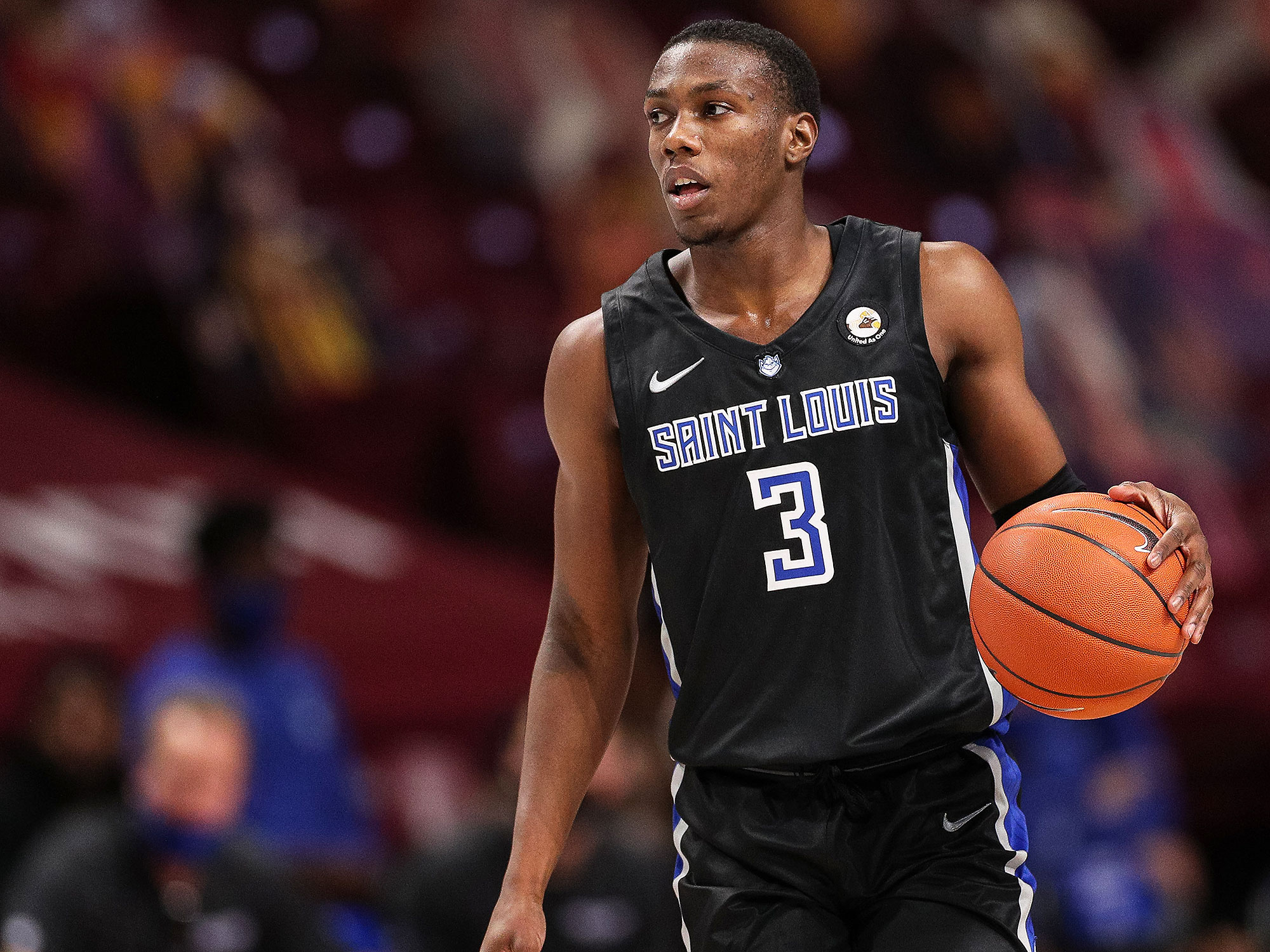
31. Saint Louis (2nd in Atlantic 10)
32. Ohio State (5th in Big Ten)
33. Memphis (2nd in AAC)
34. Miami (4th in ACC)
35. Purdue (6th in Big Ten)
36. Michigan State (7th in Big Ten)
37. Seton Hall (6th in Big East)
38. Texas A&M (7th in SEC)
39. Florida State (5th in ACC)
40. Oklahoma (6th in Big 12)
41. Wyoming (2nd in Mountain West)
42. Oklahoma State (7th in Big 12)
43. Saint Mary’s (2nd in WCC)
44. LSU (8th in SEC)
45. USC (4th in Pac-12)
46. UAB (1st in Conference USA)
47. St. John’s (7th in Big East)
48. Iowa State (8th in Big 12)
49. West Virginia (9th in Big 12)
50. Cincinnati (3rd in AAC)
Conference Previews: Big 12 | A-10 | Pac-12
Not only will Saint Louis (No. 31) return four starters from a 23-win team, but it will get back a healthy Javonte Perkins (17.1 ppg in 2020–21) after he missed all of last season with a torn ACL. Memphis (No. 33) came on hot down the stretch last season, and, while it lost plenty off that roster, Penny Hardaway will bring back talented big DeAndre Williams and add AAC Player of the Year Kendric Davis from SMU. Purdue (No. 35) and Michigan State (No. 36) both have Big Ten sleeper potential; the Boilermakers will be led by 7'4" junior Zach Edey, while Tom Izzo is betting big on last season’s group taking a collective step forward.
March darling Shaheen Holloway is taking over at Seton Hall (No. 37), which features a mix of returners like Kadary Richmond, and imports like Al-Amir Dawes (Clemson) and Femi Odukale (Pitt). A late-season surge by Texas A&M (No. 38) almost ended its NCAA tournament drought last spring; with four starters back, Buzz Williams’s team could take the suspense out of Selection Sunday this year. Wyoming (No. 41) was one of the surprises of last season, and with the one-two punch of Hunter Maldonado and Graham Ike back, the Cowboys can challenge for their first regular-season league title since 2002. A roster exodus after the firing of Will Wade left new coach Matt McMahon rebuilding at LSU (No. 44), and two players he brought from Murray State (KJ Williams and Justice Hill) will go a long way toward determining how quick that rebuild is. Star Jordan “Jelly” Walker returns to again lead UAB (No. 46) after averaging 20.3 points; he’s one of the nation’s most underrated players. After turning around a two-win season to a 22-win one, Iowa State (No. 48) had to reload following the transfer of the talented Tyrese Hunter. A pair of St. Bonaventure imports (Jaren Holmes and Osun Osunniyi) will keep the Cyclones in the mix for another Big Dance.
51. Notre Dame (6th in ACC)
52. Rutgers (8th in Big Ten)
53. VCU (3rd in Atlantic 10)
54. Virginia Tech (7th in ACC)
55. Wisconsin (9th in Big Ten)
56. Stanford (5th in Pac-12)
57. Butler (8th in Big East)
58. Maryland (10th in Big Ten)
59. Loyola Chicago (4th in Atlantic 10)
60. North Texas (2nd in Conference USA)
61. Mississippi State (9th in SEC)
62. Marquette (9th in Big East)
63. Drake (1st in Missouri Valley)
64. Washington (6th in Pac-12)
65. Missouri (10th in SEC)
66. Tulane (4th in AAC)
67. Western Kentucky (3rd in Conference USA)
68. Syracuse (8th in ACC)
69. Kansas State (10th in Big 12)
70. Washington State (7th in Pac-12)
71. BYU (3rd in WCC)
72. Temple (5th in AAC)
73. UMass (5th in Atlantic 10)
74. Colorado (8th in Pac-12)
75. Ole Miss (11th in SEC)
Steve Pikiell is already in rare air for the work he has done at Rutgers (No. 52), but could make more history in Piscataway if he takes the program to a third straight NCAA tournament—which has never happened before. The Scarlet Knights core of Paul Mulcahy, Clifford Omoruyi and Caleb McConnell gives them the chance to do just that. Staying in the Big Ten, Wisconsin (No. 55) seems to feel disrespected by being picked ninth in the conference after sharing the league title a season ago. Johnny Davis isn’t walking through that door, but Tyler Wahl and Steven Crowl make for a strong frontcourt duo.
Thad Matta should have Butler (No. 57) much improved thanks to transfer additions of Manny Bates (NC State) and Eric Hunter Jr. (Purdue). Will it be enough to get the Bulldogs to the NCAA tournament? Loyola Chicago (No. 59) loses a legendary senior class, but Drew Valentine arguably has a more talented roster than he did a season ago and should have this team competitive in the Atlantic 10. As the Ramblers depart the Missouri Valley, the favorite in that league is Drake (No. 63) behind an extremely experienced group and star wing Tucker DeVries.
Dennis Gates and Jerome Tang have brought new energy to Missouri (No. 65) and Kansas State (No. 69), respectively. A pair of transfers may lift those squads into relevancy: Isiaih Mosley at Missouri could be one of the SEC’s leading scorers, while Keyontae Johnson returns to college hoops after nearly two years on the sidelines following a cardiac emergency during the 2020–21 season to give K-State some star power. Also, don’t sleep on Temple (No. 72), a sneaky-talented group that should push for a postseason berth if Khalif Battle stays healthy.
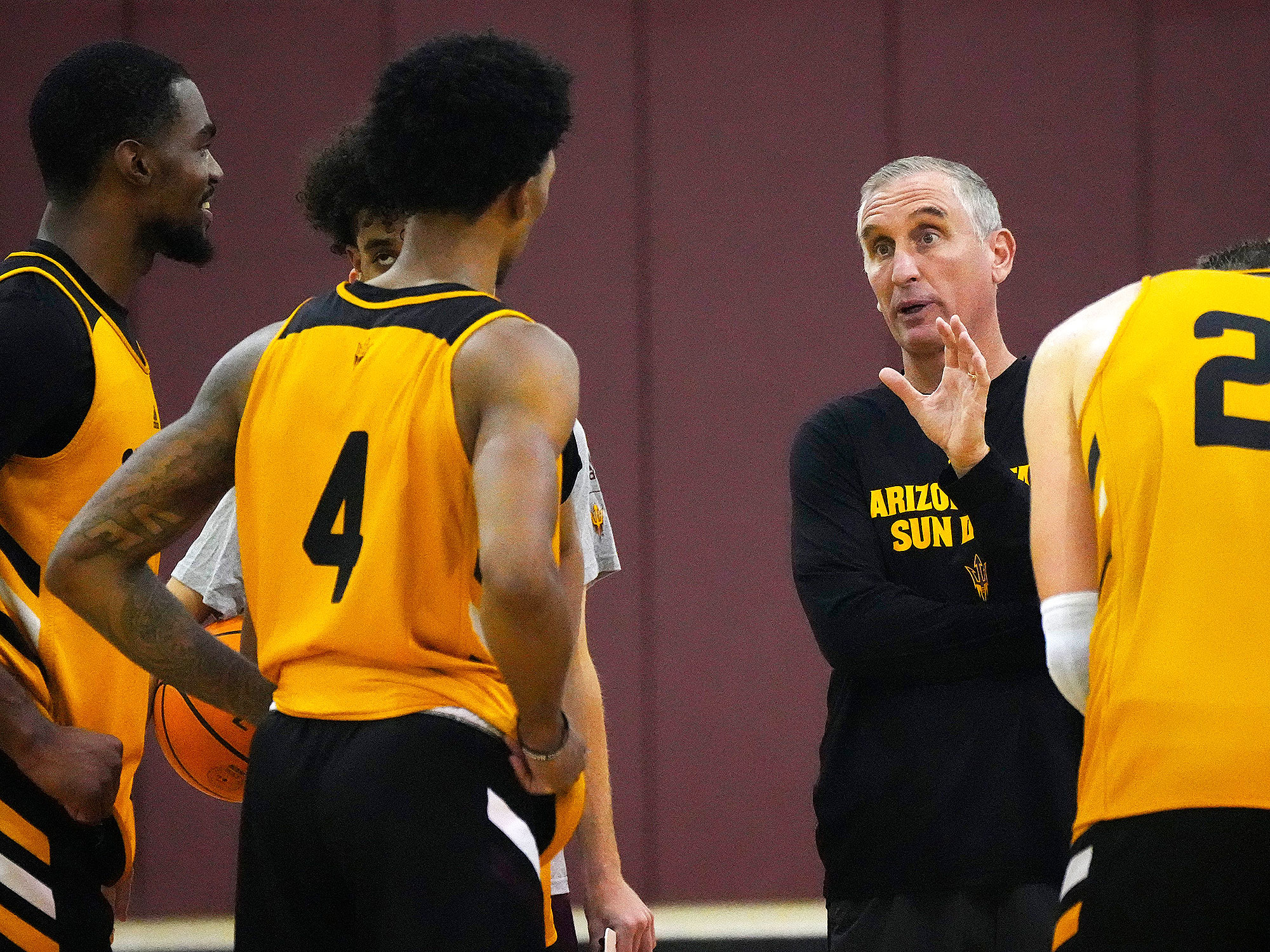
76. Penn State (11th in Big Ten)
77. Colorado State (3rd in Mountain West)
78. Bradley (2nd in Missouri Valley)
79. Louisville (9th in ACC)
80. George Mason (6th in Atlantic 10)
81. New Mexico (4th in Mountain West)
82. Boise State (5th in Mountain West)
83. Arizona State (9th in Pac-12)
84. Minnesota (12th in Big Ten)
85. Toledo (1st in MAC)
86. San Francisco (4th in WCC)
87. Clemson (10th in ACC)
88. Georgia (12th in SEC)
89. New Mexico State (1st in WAC)
90. Wake Forest (11th in ACC)
91. UNLV (6th in Mountain West)
92. Southern Illinois (3rd in Missouri Valley)
93. Utah State (7th in Mountain West)
94. NC State (12th in ACC)
95. Utah (10th in Pac-12)
96. Towson (1st in CAA)
97. Furman (1st in SoCon)
98. Vermont (1st in America East)
99. Pittsburgh (13th in ACC)
100. Wichita State (6th in AAC)
Conference Previews: AAC | Big East | Mountain West | WCC
The NBA departure of David Roddy already made it hard for Colorado State (No. 77) to replicate last season’s success, but a recent foot injury to star point guard Isaiah Stevens (who is out indefinitely) is another huge blow. The Rams’ NCAA tourney chances may be auto bid or bust, assuming Stevens’s healthy return. Louisville (No. 79) will open the Kenny Payne era with modest expectations, and losing to Division II Lenoir-Rhyne in an exhibition did nothing to inspire confidence. The Cardinals do have the athletes to be competitive, but it may take some time. After an up-and-down Year 1 under Kim English, George Mason (No. 80) gets three starters back in its bid to move up the A-10 ranks. Bobby Hurley staved off hot seat questions following a 7–2 finish to last season, but the pressure remains on at Arizona State (No. 83) after back-to-back years under .500. Toledo (No. 85) is going for its third straight MAC title, but the Rockets would still need to get over the conference tournament hump to go dancing for the first time since 1980. New Mexico State (No. 89), meanwhile, has been no stranger to the NCAA tourney of late and has another strong roster after hitting the transfer portal hard (including landing the SEC’s Xavier Pinson and DaJuan Gordon).
Other conference winners we’re projecting: Towson (No. 96), Furman (No. 97) and Vermont (No. 98). The Catamounts no longer have star Ryan Davis but nabbed Bellarmine standout guard Dylan Penn in the spring; the Tigers bring back their top four scorers, led by guard duo Cam Holden and Nicolas Timberlake.
Watch college basketball live with fuboTV: Start a free trial today!
101. Richmond (7th in Atlantic 10)
102. Georgetown (10th in Big East)
103. Grand Canyon (2nd in WAC)
104. Middle Tennessee (4th in Conference USA)
105. Davidson (8th in Atlantic 10)
106. Boston College (14th in ACC)
107. Portland (5th in WCC)
108. UCF (7th in AAC)
109. Florida Atlantic (5th in Conference USA)
110. DePaul (11th in Big East)
111. Kent State (2nd in MAC)
112. Vanderbilt (13th in SEC)
113. Nevada (8th in Mountain West)
114. South Carolina (14th in SEC)
115. SMU (8th in AAC)
116. South Dakota State (1st in Summit)
117. Liberty (1st in Atlantic Sun)
118. Akron (3rd in MAC)
119. San Diego (6th in WCC)
120. Stephen F. Austin (3rd in WAC)
121. Rhode Island (9th in Atlantic 10)
122. Fresno State (9th in Mountain West)
123. Hofstra (2nd in CAA)
124. UC Santa Barbara (1st in Big West)
125. Murray State (4th in Missouri Valley)
It could be another long year for Patrick Ewing and Georgetown (No. 102), which did not win a single Big East game in 2020–21. Still, an intriguing influx of transfers—including LSU guard Brandon Murray—offers some optimism when the only way to go is up. Grand Canyon (No. 103) has found success under Bryce Drew, and with Jovan Blacksher Jr. back the Antelopes will be a worthy challenger in the WAC. Portland (No. 107) had one of the country’s largest turnarounds last season as Shantay Legans took over, and the Pilots will look to further climb the WCC standings after retaining their top seven scorers.
Vanderbilt (No. 112) made strides in Jerry Stackhouse’s third season, winning 19 games, but now must reset without do-it-all scorer Scotty Pippen Jr. Speaking of resetting, SMU (No. 115) must do the same after Kendric Davis left for AAC foe Memphis, but will need a lot out of senior Zach Nutall and Louisville transfer Samuell Williamson. Another team that lost a huge piece: South Dakota State (No. 116), which saw Baylor Scheierman choose Creighton. The Jackrabbits may not quite lead the nation in three-point shooting again, but they’re still our pick in the Summit. Rhode Island (No. 121) is starting over with Archie Miller, and while the Rams would love for their coach to replicate the A-10 success he had at Dayton, it’s probably not coming in Year 1. Over on the West Coast, UC Santa Barbara (No. 124) is an under-the-radar mid-major after adding Cal transfer Andre Kelly to a solid returning core.
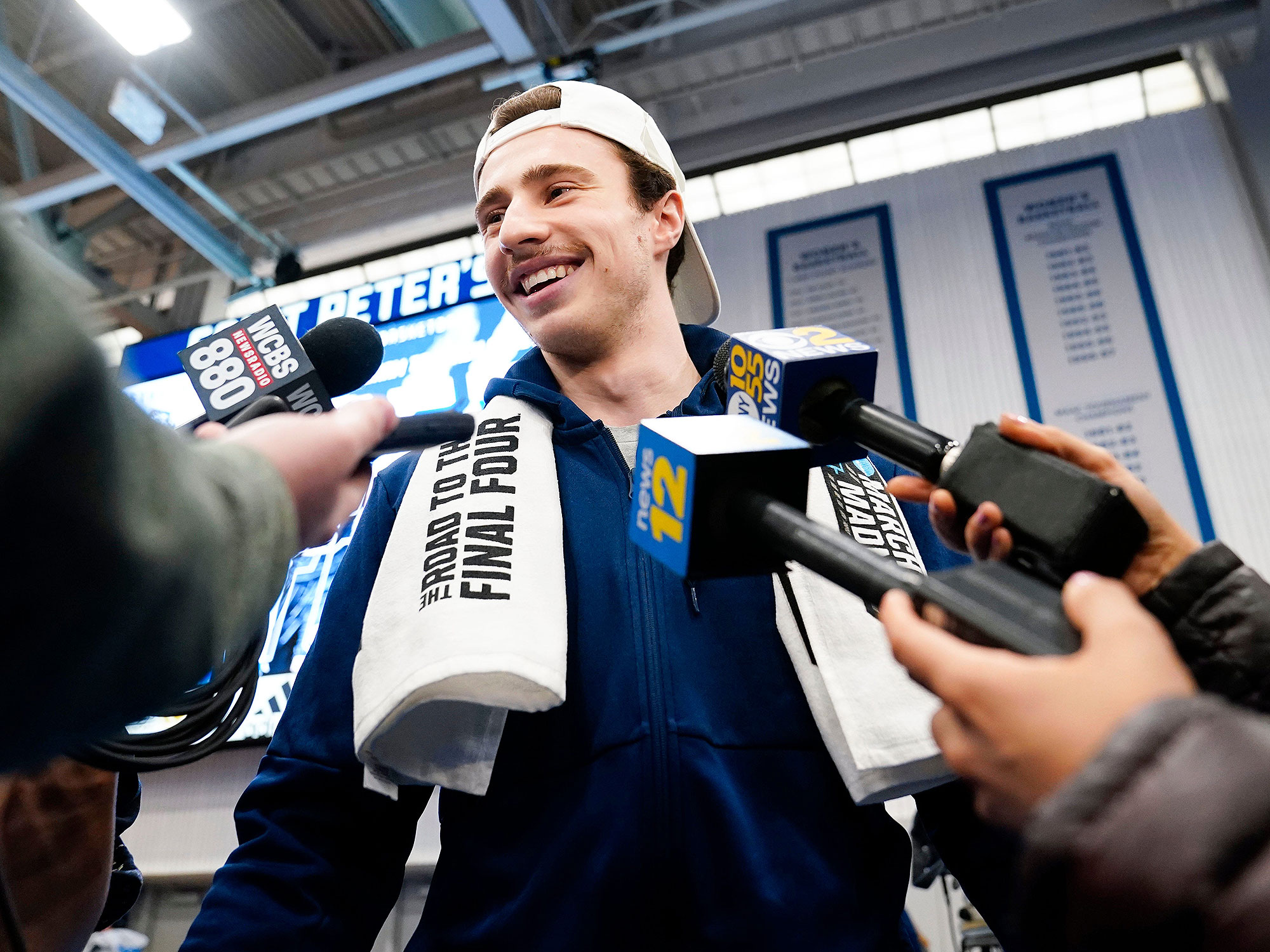
126. Colgate (1st in Patriot)
127. Northwestern (13th in Big Ten)
128. Iona (1st in MAAC)
129. Belmont (5th in Missouri Valley)
130. Abilene Christian (4th in WAC)
131. Delaware (3rd in CAA)
132. Santa Clara (7th in WCC)
133. Bryant (2nd in America East)
134. Oral Roberts (2nd in Summit)
135. College of Charleston (4th in CAA)
136. Princeton (1st in Ivy)
137. Missouri State (6th in Missouri Valley)
138. Nebraska (14th in Big Ten)
139. Samford (2nd in SoCon)
140. Penn (2nd in Ivy)
141. Pepperdine (8th in WCC)
142. Long Beach State (2nd in Big West)
143. Indiana State (7th in Missouri Valley)
144. Montana State (1st in Big Sky)
145. UC Irvine (3rd in Big West)
146. Georgia Tech (15th in ACC)
147. Louisiana (1st in Sun Belt)
148. Louisiana Tech (6th in Conference USA)
149. St. Bonaventure (10th in Atlantic 10)
150. Chattanooga (3rd in SoCon)
This year might be Chris Collins’s last stand at Northwestern (No. 127), which has finished below .500 in five straight seasons since making the NCAA tournament in 2017. He’ll need a huge year from PG Boo Buie to avoid that becoming six straight. There’s always intrigue in what Rick Pitino is up to at Iona (No. 128). The legendary coach leaned more on high school recruits than the portal this spring, though juco guard Daniss Jenkins should help in navigating a tough nonconference schedule. Bryant (No. 133) went the other direction, going all-in on transfers and landing some big names, like former elite recruit Earl Timberlake (Memphis) and sharpshooter Doug Edert (Saint Peter’s) as it gears up to compete for the America East title.
There’s so much star power at every level of college hoops. Max Abmas of Oral Roberts (No. 134) proved that during the Golden Eagles’ run to the Sweet 16 in 2021, and he should top 2,000 (maybe even 2,500) career points this season. Princeton (No. 136) has a potential future March star in Tosan Evbuomwan, one of the most unique players in the sport thanks to his passing skills at 6'8". He’ll need to carry the load after the Tigers lost transfers to Michigan, Colorado and Belmont last spring. And the next mid-major star out West is Maxwell Lewis at Pepperdine (No. 141), an elite athlete who showed flashes of brilliance during a rebuilding year in 2021–22.
Don’t overlook the job Danny Sprinkle has done at Montana State (No. 144). He took the Bobcats to their first NCAA tournament since 1996 (when Sprinkle was a freshman on the team) last season. It’s possible the conference with the most parity this season will be the Sun Belt, topped by Louisiana (No. 147). It’s got a star in Jordan Brown and a proven coach in Bob Marlin, but we’re projecting just 50 spots of separation between first and eighth in this league.
151. Sam Houston State (5th in WAC)
152. UNC Greensboro (4th in SoCon)
153. Winthrop (1st in Big South)
154. Yale (3rd in Ivy)
155. Youngstown State (1st in Horizon)
156. Jacksonville (2nd in Atlantic Sun)
157. Texas State (2nd in Sun Belt)
158. UTEP (7th in Conference USA)
159. George Washington (11th in Atlantic 10)
160. Cal State Fullerton (4th in Big West)
161. Ball State (4th in MAC)
162. Fort Wayne (2nd in Horizon)
163. Cal (11th in Pac-12)
164. Longwood (2nd in Big South)
165. Tulsa (9th in AAC)
166. Northern Iowa (8th in Missouri Valley)
167. Hawaii (5th in Big West)
168. Jacksonville State (3rd in Atlantic Sun)
169. Southern Utah (6th in WAC)
170. Loyola Marymount (9th in WCC)
171. Ohio (5th in MAC)
172. James Madison (3rd in Sun Belt)
173. Oakland (3rd in Horizon)
174. Illinois State (9th in Missouri Valley)
175. Old Dominion (4th in Sun Belt)
A rebuilt backcourt featuring transfers Kasen Harrison (Lamar), Isaiah Wilson (Richmond) and Howard Fleming Jr. (Illinois State) could boost Winthrop (No. 153) back to the top of the Big South after losing the league crown to Longwood last season. Youngstown State (No. 155) has never made the NCAA tournament, but that could change if its defense improves from last season. The Penguins are our pick in a crowded Horizon League. The Big Dance is also within reach for Jacksonville (No. 156) with the trajectory Jordan Mincy’s program is on. It would be the Dolphins’ first trip to the NCAA tournament since 1986.
Chris Caputo has been mentioned for head coaching jobs for years, but the 42-year-old, longtime Jim Larrañaga assistant finally gets his chance at George Washington (No. 159). He’ll rely on returners James Bishop IV and Ricky Lindo Jr. for a Year 1 breakthrough. Another longtime assistant breaking through: UCLA staffer Michael Lewis, who was hired at Ball State (No. 161) and has a roster that could make immediate noise in the MAC.
Bet on a breakout year for crafty combo guard Bowen Born at Northern Iowa (No. 166), though it will take a lot for the Panthers to stay near the top of the MVC with AJ Green and Noah Carter having departed. James Madison (No. 172) coach Mark Byington is plenty familiar with the Sun Belt from his years at Georgia Southern. The Dukes could be well positioned to contend in their first year in the league with an experienced roster and talented South Dakota State transfer Noah Freidel. And at Oakland (No. 173), the backcourt duo of high-assist PG Jalen Moore and volume scorer Rocket Watts (who has had stops at Michigan State and Mississippi State) should be incredibly fun to watch.
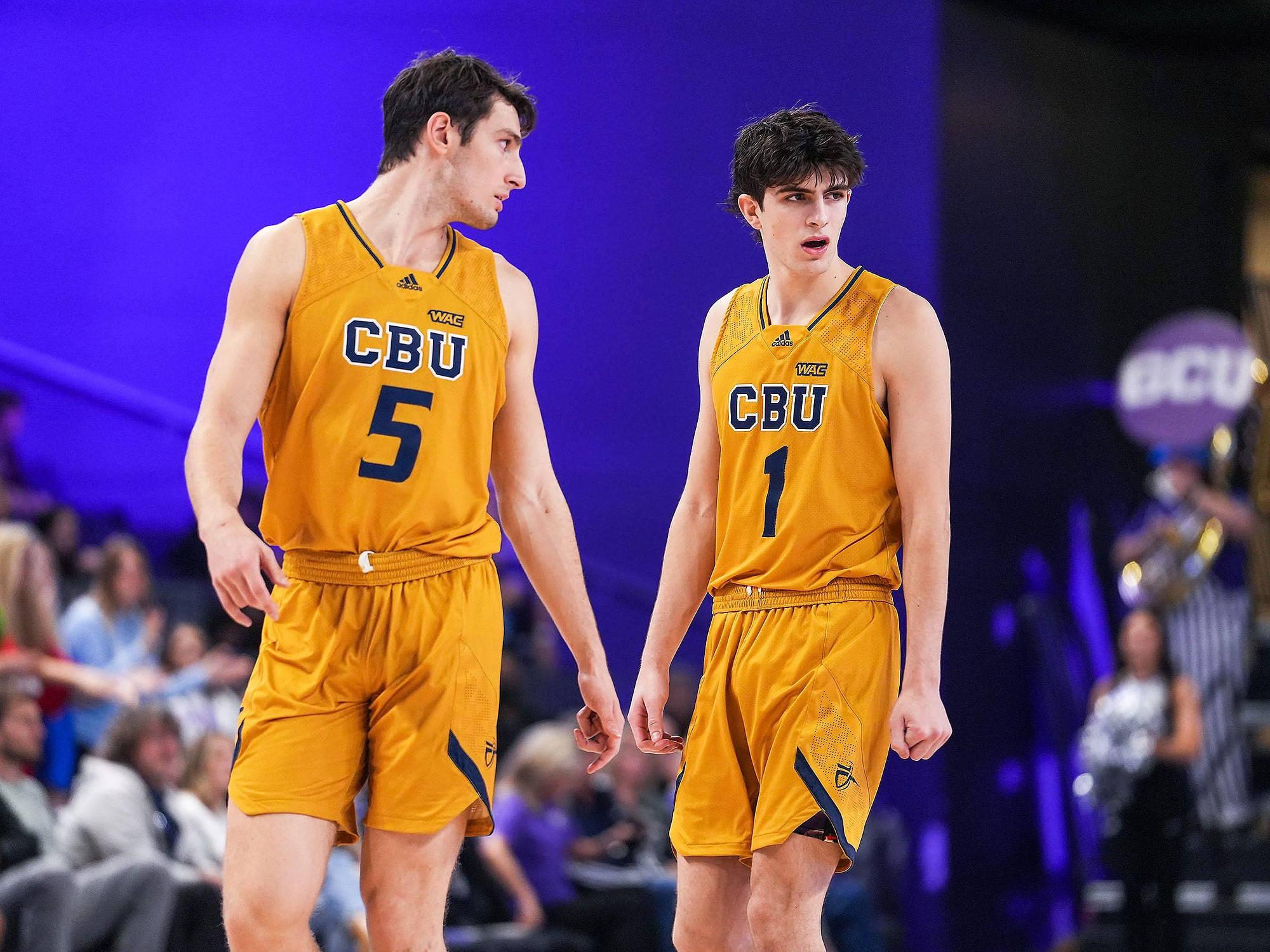
176. California Baptist (7th in WAC)
177. Duquesne (12th in Atlantic 10)
178. Wright State (4th in Horizon)
179. Georgia State (5th in Sun Belt)
180. Utah Valley (8th in WAC)
181. Eastern Kentucky (4th in Atlantic Sun)
182. Seattle (9th in WAC)
183. Northern Kentucky (5th in Horizon)
184. South Alabama (6th in Sun Belt)
185. Wofford (5th in SoCon)
186. UNC Wilmington (5th in CAA)
187. Buffalo (6th in MAC)
188. Harvard (4th in Ivy)
189. Appalachian State (7th in Sun Belt)
190. Fordham (13th in Atlantic 10)
191. UC Riverside (6th in Big West)
192. East Tennessee State (6th in SoCon)
193. Saint Joseph’s (14th in Atlantic 10)
194. Marshall (8th in Sun Belt)
195. Northeastern (6th in CAA)
196. South Dakota (3rd in Summit)
197. Mercer (7th in SoCon)
198. Rice (8th in Conference USA)
199. Rider (2nd in MAAC)
200. South Florida (10th in AAC)
You’ll want to remember the name of California Baptist’s (No. 176) Australian PG Taran Armstrong, a ball-screen maestro who averaged more than six assists per game as a freshman. Another potential mid-major star point guard? Dwon Odom at Georgia State (No. 179). Odom followed coach Jonas Hayes to GSU from Xavier, where Hayes served as interim head coach during the team’s NIT title run.
Seattle (No. 182) was one of the nation’s biggest surprises in 2021–22, winning a share of the WAC’s regular-season title with then interim coach Chris Victor at the helm. It won’t be easy to stay at the top of the league without star PG Darrion Trammell, though. Perhaps no team embraced recruiting D-II transfers more than South Alabama (No. 184), adding three former D-II stars to a roster that also features talented pieces like Greg Parham II and Kevin Samuel. Buffalo (No. 187) was another team to hunt the D-II portal this spring, adding a potential centerpiece in Armoni Foster from perennial power Indiana U (PA).
Fordham (No. 190) showed real promise (including a top-50 defense) in Kyle Neptune’s lone season in the Bronx, so when Neptune left for Villanova it made sense to promote top assistant Keith Urgo. Urgo kept together the roster and brought in a talented freshman class that could help the Rams overachieve. One coaching change that was a surprise to many: South Dakota (No. 196) parting ways with alum Todd Lee after a 19–12 season, though new coach Eric Peterson is regarded as a potential rising star. To avoid seeing his name on hot seat lists come March, South Florida (No. 200) coach Brian Gregory needs to improve an offense that shot a ghastly 25% from three a season ago.
201. Norfolk State (1st in MEAC)
202. Cornell (5th in Ivy)
203. East Carolina (11th in AAC)
204. Florida Gulf Coast (5th in Atlantic Sun)
205. Charlotte (9th in Conference USA)
206. UNC Asheville (3rd in Big South)
207. Coastal Carolina (9th in Sun Belt)
208. La Salle (15th in Atlantic 10)
209. Nicholls State (1st in Southland)
210. Navy (2nd in Patriot)
211. Siena (3rd in MAAC)
212. Howard (2nd in MEAC)
213. Valparaiso (10th in Missouri Valley)
214. Eastern Michigan (7th in MAC)
215. Gardner-Webb (4th in Big South)
216. Fairfield (4th in MAAC)
217. Air Force (10th in Mountain West)
218. Denver (4th in Summit)
219. Texas A&M–Corpus Christi (2nd in Southland)
220. North Dakota State (5th in Summit)
221. Oregon State (12th in Pac-12)
222. Tarleton State (10th in WAC)
223. Stony Brook (7th in CAA)
224. Quinnipiac (5th in MAAC)
225. Georgia Southern (10th in Sun Belt)
Defending MEAC Player of the Year Joe Bryant Jr. returns for his extra year of eligibility at Norfolk State (No. 201), which has become a perennial fixture atop the MEAC under coach Robert Jones. Former Penn State coach Pat Chambers gets another chance at Florida Gulf Coast (No. 204) and could move up the standings fairly quickly thanks to transfer additions like Isaiah Thompson (Purdue) and Sam Onu (Memphis).
Cliff Ellis, 76, got his first D-I head job in 1975. Forty-seven years later he’s still going, entering his 16th season leading the Coastal Carolina (No. 207) program. Ellis had won more than 250 career games by the time Nicholls State (No. 209) coach Austin Claunch was born in November ’89. Claunch already has 74 wins and two conference titles in his career despite being one of the youngest coaches in the sport.
The Emoni Bates show will be an interesting story to track at Eastern Michigan (No. 214). Adding the former elite recruit who once was on the cover of SI doesn’t make EMU a MAC favorite, but a bounce-back year for Bates combined with other talented additions make this Eagles team a sleeper. Denver (No. 218) added five transfers, three of whom averaged more than 10 points at their previous destination, to help make a push up the Summit League standings. And Oregon State (No. 221) is our lowest-ranked high-major team following last season’s 3–28 debacle. It’s hard to believe things could get worse, but the Beavers did lose their three best players from that team.
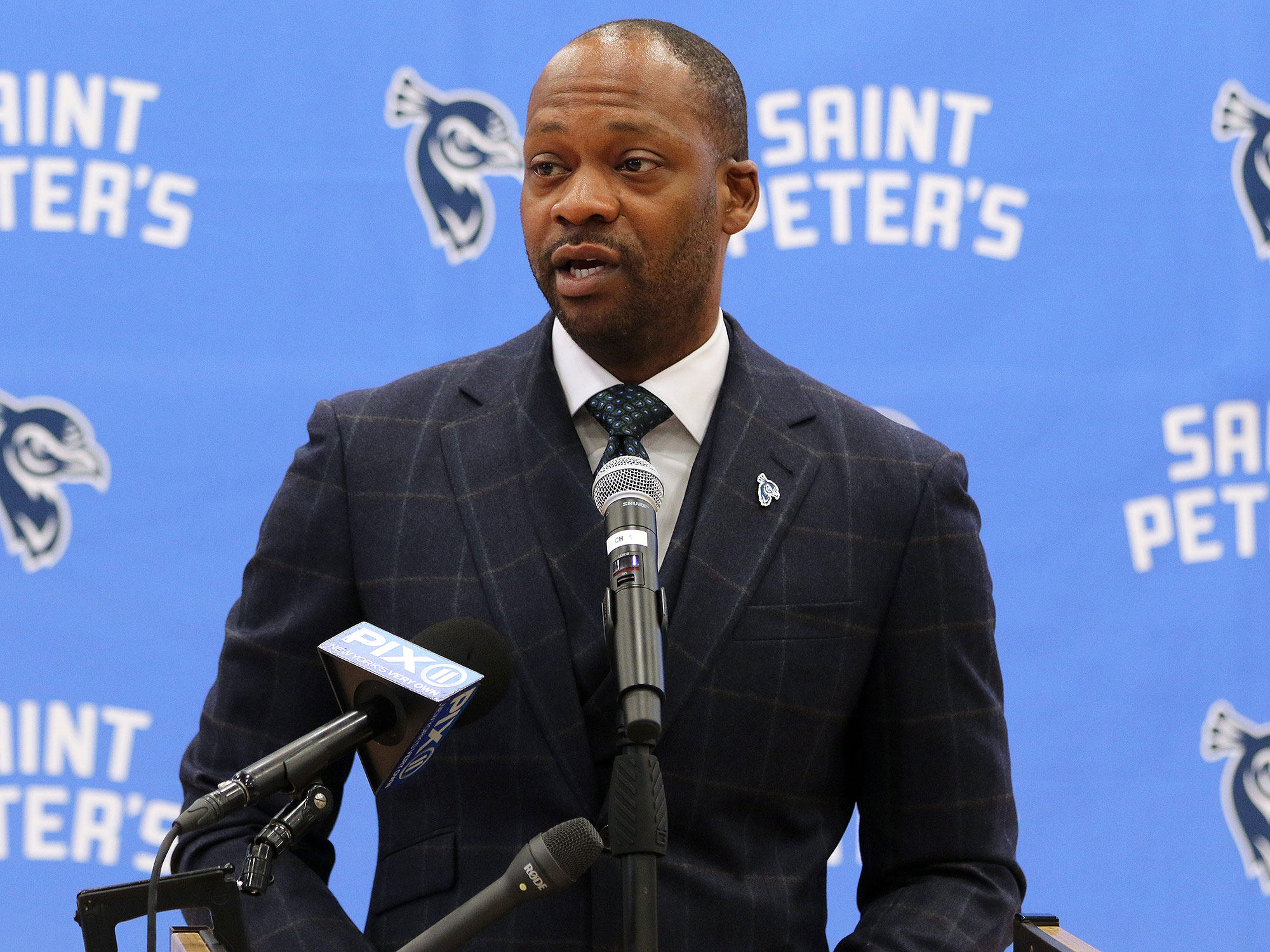
226. Texas Southern (1st in SWAC)
227. UT Martin (1st in Ohio Valley)
228. Troy (11th in Sun Belt)
229. Merrimack (1st in NEC)
230. Boston U (3rd in Patriot)
231. UT-Arlington (11th in WAC)
232. UC Davis (7th in Big West)
233. Pacific (10th in WCC)
234. Bellarmine (6th in Atlantic Sun)
235. Sacred Heart (2nd in NEC)
236. UMBC (3rd in America East)
237. Northern Colorado (2nd in Big Sky)
238. Western Michigan (8th in MAC)
239. Kennesaw State (7th in Atlantic Sun)
240. Morehead State (2nd in Ohio Valley)
241. Sacramento State (3rd in Big Sky)
242. UMass Lowell (4th in America East)
243. Saint Peter’s (6th in MAAC)
244. Weber State (4th in Big Sky)
245. Niagara (7th in MAAC)
246. Radford (5th in Big South)
247. Florida International (10th in Conference USA)
248. Montana (5th in Big Sky)
249. Detroit Mercy (6th in Horizon)
250. Brown (6th in Ivy)
Merrimack (No. 229) is our pick to win the NEC, but is in its last year of the four-year transition period to Division I and won’t be eligible for the NCAA tournament. That could set up a similar situation to what happened with Bellarmine last March, should the Warriors win this year’s NEC tournament. Speaking of Bellarmine (No. 234), the Knights lose star guard Dylan Penn, but their unique offense that emphasizes cutting and sharing the ball remains a joy to watch. Unfortunately, they’re still two years away from being eligible for the Big Dance.
If you like offense, Northern Colorado (No. 237) is worth a watch: It averaged nearly 78 points per game a season ago and has one of the more dynamic scorers in the country in Daylen Kountz back for his extra year of eligibility. After years of sharing a bench with Tom Izzo at Michigan State, Dwayne Stephens gets his first head coaching opportunity at Western Michigan (No. 238). Stephens inherits a rebuild, but star guard Lamar Norman Jr. returns, and transfer wing Tray Maddox Jr. should also help. Speaking of rebuilds, March Cinderella Saint Peter’s (No. 243) is in for a big one after a mass exodus following Shaheen Holloway’s departure for Seton Hall, but new coach Bashir Mason is a proven winner at Wagner and brought in some solid transfers in the backcourt.
One of the more intriguing mid-major newcomers is Bryan Antoine at Radford (No. 246). Antoine was a five-star recruit out of high school but was plagued with injuries during his time at Villanova. Now, he’ll play for Darris Nichols at Radford, who recruited Antoine (and high school teammate Scottie Lewis) at Florida when Antoine was in high school. And among returners, Brown (No. 250) has a young star in guard Kino Lilly Jr., who averaged over 14 points per game in Ivy League play as a freshman.
251. San Jose State (11th in Mountain West)
252. William & Mary (8th in CAA)
253. Austin Peay (8th in Atlantic Sun)
254. Wagner (3rd in NEC)
255. Lipscomb (9th in Atlantic Sun)
256. Southern Miss (12th in Sun Belt)
257. Eastern Washington (6th in Big Sky)
258. USC Upstate (6th in Big South)
259. SIU Edwardsville (3rd in Ohio Valley)
260. Army (4th in Patriot)
261. North Florida (10th in Atlantic Sun)
262. Utah Tech (12th in WAC)
263. Milwaukee (7th in Horizon)
264. Louisiana-Monroe (13th in Sun Belt)
265. North Carolina A&T (9th in CAA)
266. Tennessee State (4th in Ohio Valley)
267. Northwestern State (3rd in Southland)
268. Manhattan (8th in MAAC)
269. Bowling Green (9th in MAC)
270. UC San Diego (8th in Big West)
271. Portland State (7th in Big Sky)
272. Jackson State (2nd in SWAC)
273. Cleveland State (8th in Horizon)
274. Saint Francis (Pa.) (4th in NEC)
275. Albany (5th in America East)
The ever-quotable Tim Miles enters his second year of a long rebuild at San Jose State (No. 251). Talented playmaking wing Omari Moore is the centerpiece, and a full year with big man Ibrahima Diallo should also help. Lipscomb (No. 255) is home to one of the nation’s most unique players: 275-pound center Ahsan Asadullah, who was fifth nationally in assist rate a season ago. And speaking of mid-major star power, watch out for combo guard Jordan Gainey at USC Upstate (No. 258); he was underrecruited out of high school but shot a blistering 49% from three as a freshman last season.
Milwaukee (No. 263) made a savvy hire in Bart Lundy from D-II power Queens, where he won more than 78% of games in his tenure. A transfer-heavy roster could surprise in the Horizon League if the pieces can jell together. Northwestern State (No. 267) features one-armed sensation Hansel Enmanuel, whose highlight tapes are the stuff of legend before he even enters a college game. And there might not be a more difficult team to rank right now than Manhattan (No. 268), after coach Steve Masiello was dismissed last week and star Jose Perez entered the transfer portal. Perez has already committed to West Virginia, but two other key contributors remain in the portal. This level of roster uncertainty so close to the season is unheard of.
Jackson State (No. 272) appears to be attempting to replicate the Deion Sanders model in hoops, hiring NBA veteran Mo Williams as coach this offseason. Williams does have past college head coaching experience at Alabama State. Albany (No. 275) is hitching its hopes for a big Year 2 under Dwayne Killings on the shoulders of talented sophomores Justin Neely and Aaron Reddish.
276. Miami-Ohio (10th in MAC)
277. Coppin State (3rd in MEAC)
278. UIC (11th in Missouri Valley)
279. Drexel (10th in CAA)
280. Marist (9th in MAAC)
281. Campbell (7th in Big South)
282. Lehigh (5th in Patriot)
283. Arkansas State (14th in Sun Belt)
284. Tennessee Tech (5th in Ohio Valley)
285. Columbia (7th in Ivy)
286. Cal State Bakersfield (9th in Big West)
287. Western Carolina (8th in SoCon)
288. Prairie View (3rd in SWAC)
289. North Carolina Central (4th in MEAC)
290. Mount St. Mary’s (10th in MAAC)
291. Central Michigan (11th in MAC)
292. Binghamton (6th in America East)
293. Dartmouth (8th in Ivy)
294. Bucknell (6th in Patriot)
295. Little Rock (6th in Ohio Valley)
296. Grambling State (4th in SWAC)
297. Omaha (6th in Summit)
298. UTSA (11th in Conference USA)
299. Morgan State (5th in MEAC)
300. Cal Poly (10th in Big West)
Proven high-major players were such a hot commodity this spring, which is why it’s all the more impressive that Coppin State (No. 277) lured Penn State transfer guard Sam Sessoms (11.6 ppg for the Nittany Lions last season). He could be among the nation’s leading scorers. But while the portal provided some low- and mid-majors gifts, it stripped others, like Arkansas State (No. 283) of its best player. The Red Wolves lost rebounding machine Norchad Omier to Miami this spring.
Jim Engles has struggled to get on track at Columbia (No. 285), but help could be on the way in the form of talented freshmen Avery Brown and Blair Thompson, who each got higher-level looks out of New England prep powerhouse Northfield Mount Hermon. Binghamton (No. 292) gave coach Levell Sanders a long-term deal after he performed admirably on an interim basis last season, winning the program’s most league games since 2010. It’s got the pieces back to replicate that in ’22–23. A proud Bucknell (No. 294) program has fallen on hard times lately, with three straight losing seasons after four NCAA tournament appearances in the ’10s. Losing star guard Andrew Funk makes a turnaround this year even more challenging.
A pair of former Lon Kruger assistants in Chris Crutchfield and Steve Henson have their programs (Omaha at No. 297 and UTSA at No. 298) back-to-back in these rankings. Kruger retired in 2021 but has one of the deepest coaching trees in the industry featuring the likes of Eric Musselman, Dana Altman and many others during his time in the NBA and college.
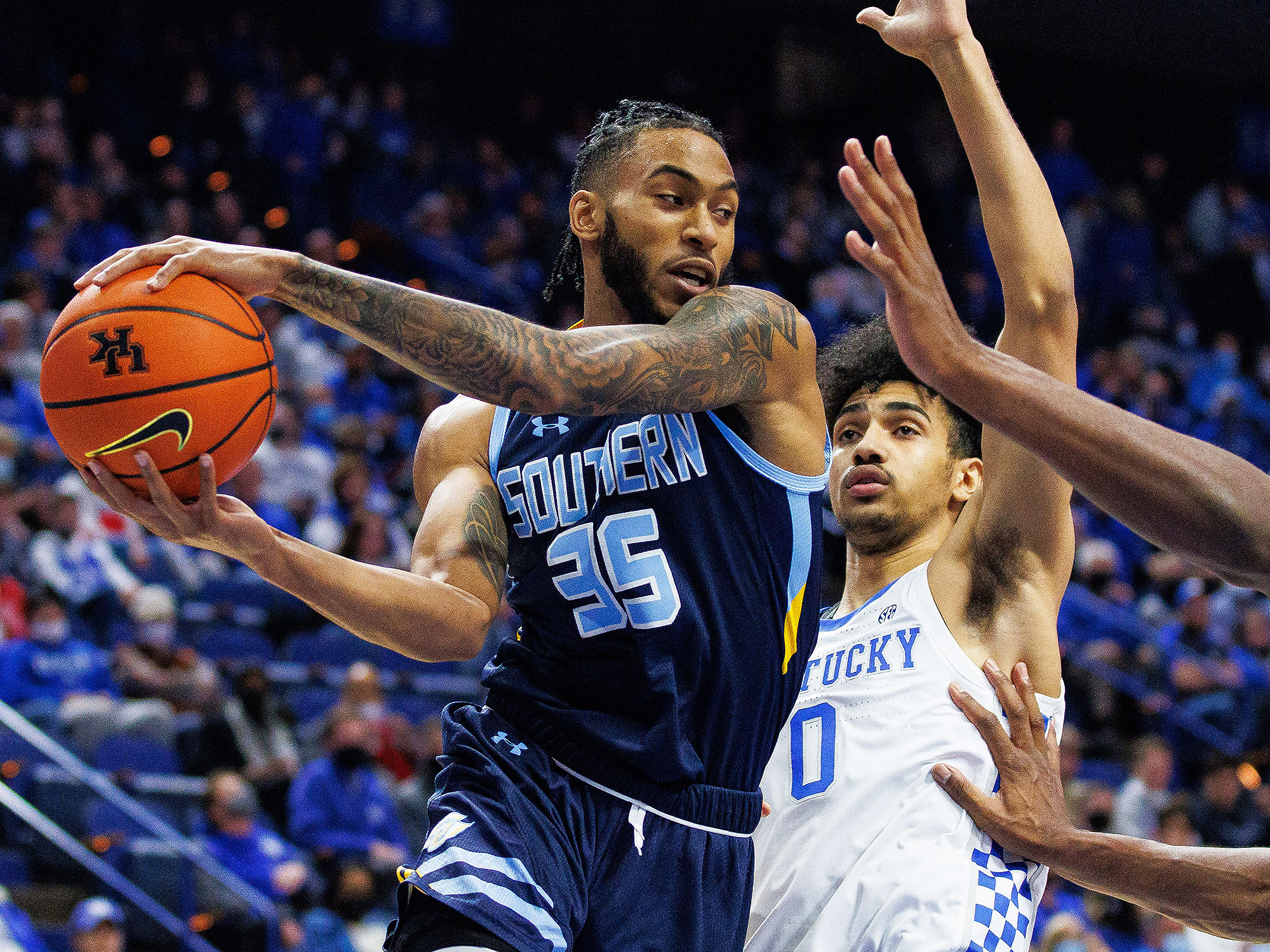
301. Monmouth (11th in CAA)
302. New Orleans (4th in Southland)
303. Western Illinois (7th in Summit)
304. Southern (5th in SWAC)
305. Northern Illinois (12th in MAC)
306. Central Connecticut (5th in NEC)
307. Robert Morris (9th in Horizon)
308. Southern Indiana (7th in Ohio Valley)
309. NJIT (7th in America East)
310. Queens (11th in Atlantic Sun)
311. Canisius (11th in MAAC)
312. Elon (12th in CAA)
313. Stetson (12th in Atlantic Sun)
314. Northern Arizona (8th in Big Sky)
315. Evansville (12th in Missouri Valley)
316. St. Thomas (8th in Summit)
317. Fairleigh Dickinson (6th in NEC)
318. High Point (8th in Big South)
319. Southeast Missouri State (8th in Ohio Valley)
320. American (7th in Patriot)
321. The Citadel (9th in SoCon)
322. Bethune-Cookman (6th in SWAC)
323. Kansas City (9th in Summit)
324. North Alabama (13th in Atlantic Sun)
325. Maryland Eastern Shore (6th in MEAC)
326. New Hampshire (8th in America East)
327. Alcorn State (7th in SWAC)
328. Central Arkansas (14th in Atlantic Sun)
329. Idaho (9th in Big Sky)
330. Texas A&M–Commerce (5th in Southland)
331. LIU (7th in NEC)
King Rice has built a consistent program at Monmouth (No. 301), but the school’s move to the CAA comes at a less-than-ideal time with all five starters graduating and no incoming transfers to provide experience. Southern (No. 304) has a nonconference schedule that will take it to six different states before its first D-I home game in January. The biggest test? An opening-week matchup with Arizona. Of the five new teams to Division I, Southern Indiana (No. 308) is our highest-ranked, thanks to a proven coach in Stan Gouard and Houston transfer big man Kiyron Powell.
Looking for college basketball’s Lance Leipold? Fairleigh Dickinson (No. 317) might have found him in Tobin Anderson, a longtime D-II and D-III coach who won a ridiculous 82% of his games in the last seven seasons at D-II St. Thomas Aquinas and beat St. John’s by 32 in 2015. In a year that saw multiple “coaching reunions,” The Citadel (No. 321) brought back Ed Conroy, who built a winner there in the late 2000s before leaving for the Tulane job. And one more intriguing coaching hire: Kansas City (No. 323) was rumored to be hunting a splashy name, but eventually wound up with former UNLV and New Mexico State coach Marvin Menzies. Menzies did take the Aggies to five NCAA tournaments and brought Pascal Siakam to Las Cruces.
These rankings owe an apology to Maryland Eastern Shore (No. 325) after UMES won 11 games in 2021–22, clearly proving wrong our prediction that it’d be the worst team in Division I. In our defense, it had opted out of the previous season and had gone 5–27 the one before that. LIU (No. 331) made perhaps the most out-of-left-field coaching change of the cycle, dumping someone in Derek Kellogg who never finished under .500 in league play in his five seasons to replace him with Rod Strickland, who most recently helped run the G League Ignite program.
332. Charleston Southern (9th in Big South)
333. Idaho State (10th in Big Sky)
334. North Dakota (10th in Summit)
335. Alabama State (8th in SWAC)
336. Green Bay (10th in Horizon)
337. Hampton (13th in CAA)
338. Southeastern Louisiana (6th in Southland)
339. South Carolina State (7th in MEAC)
340. Loyola Maryland (8th in Patriot)
341. Chicago State (Independent)
342. Lafayette (9th in Patriot)
343. Presbyterian (10th in Big South)
344. Cal State Northridge (11th in Big West)
345. IUPUI (11th in Horizon)
346. Maine (9th in America East)
347. Eastern Illinois (9th in Ohio Valley)
348. St. Francis Brooklyn (8th in NEC)
349. McNeese State (7th in Southland)
350. VMI (10th in SoCon)
351. Florida A&M (9th in SWAC)
352. Lamar (8th in Southland)
353. Holy Cross (10th in Patriot)
354. Alabama A&M (10th in SWAC)
355. Arkansas Pine Bluff (11th in SWAC)
356. Houston Baptist (9th in Southland)
357. Incarnate Word (10th in Southland)
358. Texas–Rio Grande (13th in WAC)
359. Stonehill (9th in NEC)
360. Delaware State (8th in MEAC)
361. Lindenwood (10th in Ohio Valley)
362. Mississippi Valley State (12th in SWAC)
363. Hartford (Independent)
Tony Madlock takes over at Alabama State (No. 335) after an impressive one-year rebuild at South Carolina State (No. 339). The Bulldogs did make a strong hire to replace him though in longtime West Virginia assistant Erik Martin, who also played for Bob Huggins at Cincinnati.
Chicago State (No. 341) is now an independent after nine years in the WAC, but the Cougars could be feisty after adding a pair of former highly touted recruits in Elijah Weaver (Dayton) and Wesley Cardet Jr. (Samford) from the transfer portal. After earning the dubious distinction of being KenPom’s worst-ranked team in 2021–22, IUPUI (No. 345) should show slight improvement thanks to 10 new scholarship players, including San Diego transfer PG Bryce Monroe. Another team looking for a bounceback is Lamar (No. 352), which did not beat a D-I team in Alvin Brooks’s first season as coach.
Our bottom-10 teams feature teams coming and going in Division I. Stonehill (No. 359) and Lindenwood (No. 361) weren’t powerhouses at the D-II level, but realignment opened up space in the NEC and OVC, respectively, for these two programs. Programs like Abilene Christian are proof that D-II success isn’t necessarily a prerequisite for eventually becoming a strong D-I institution. And departing D-I with a whimper is Hartford (No. 363), just two years after making the Big Dance. The team’s fall this season is through no fault of coach John Gallagher, whose program has been kneecapped by the inability to offer athletic scholarships to new recruits as part of the school’s move to D-III.
More College Hoops Coverage:
• 10 Men’s Player Breakout Candidates for 2022–23
• How Rutgers Reemerged as an Iconic Hoops Venue
• Top Games to Circle This College Hoops Season
